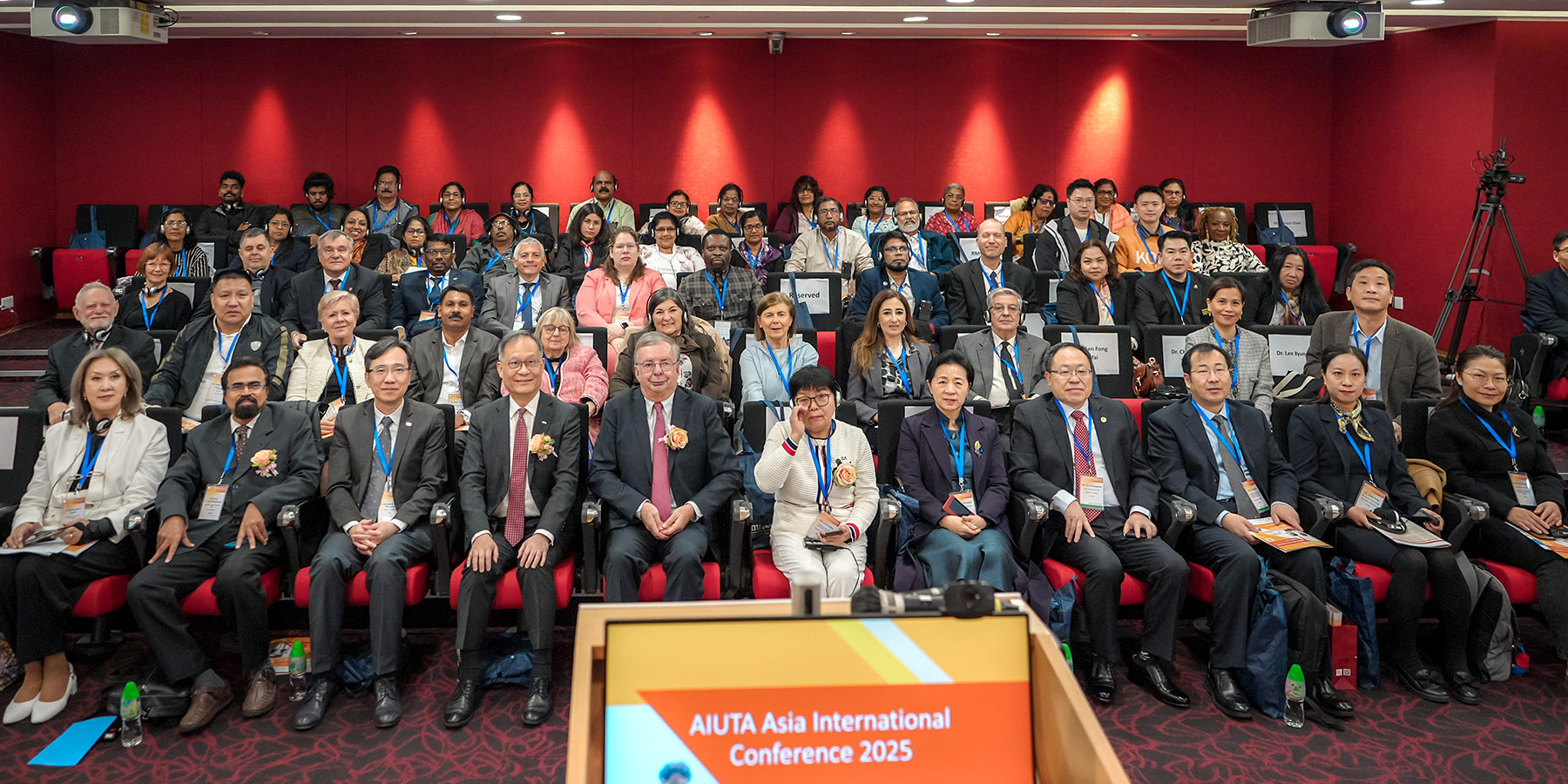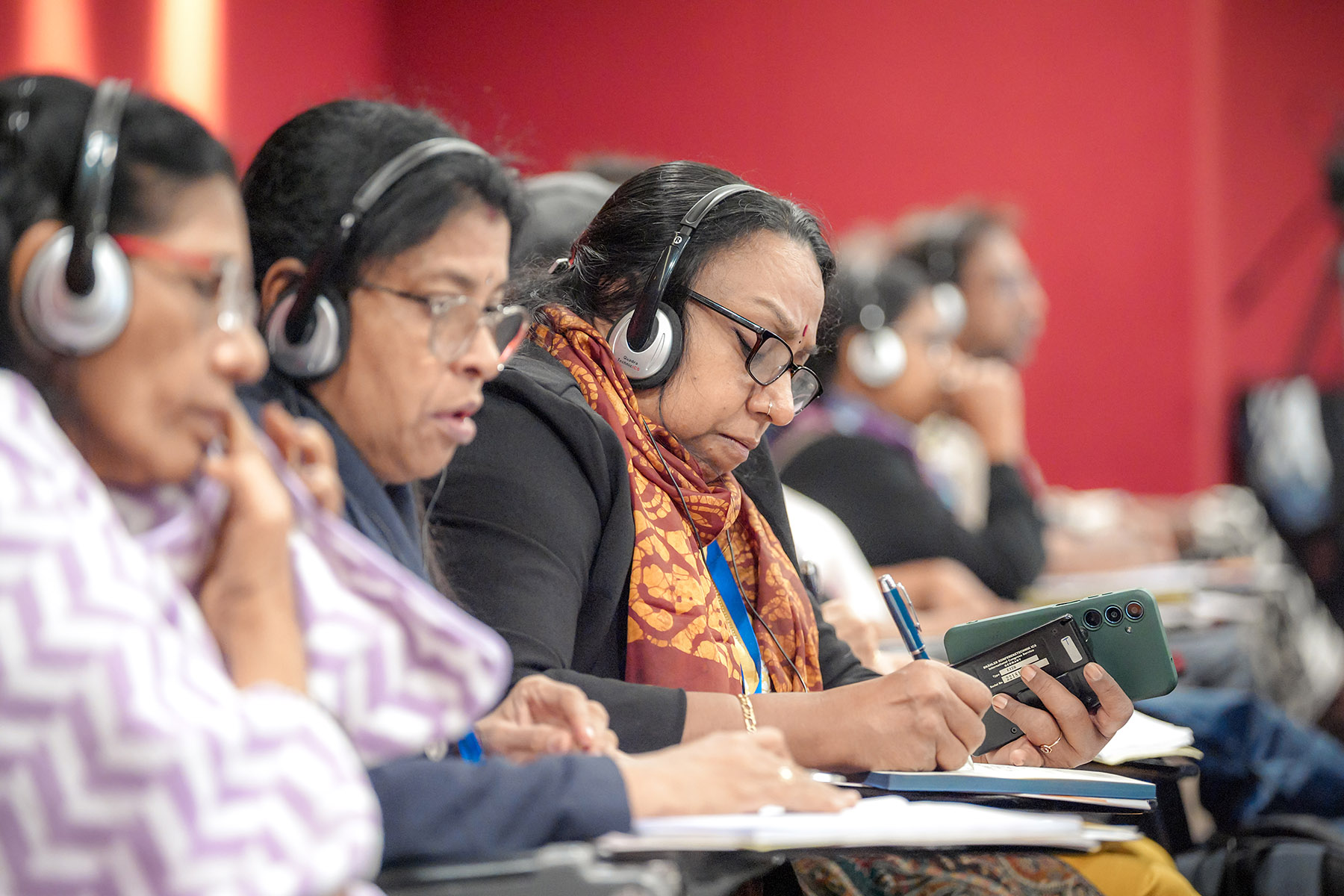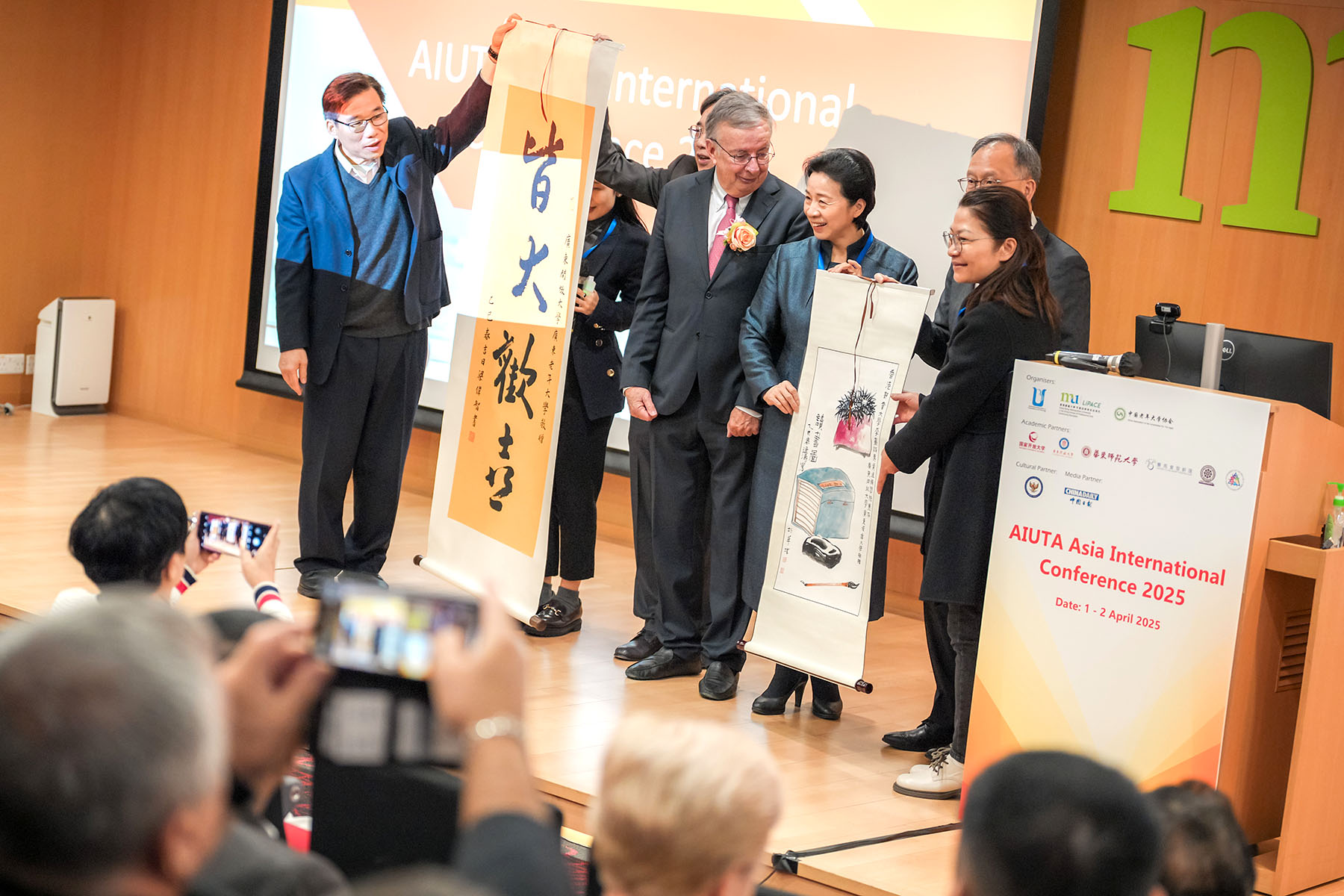Conference in Hong Kong highlights collaborative efforts and technological innovations in education for senior adults

Leading Asian educators are recognizing a growing demand for quality lifelong learning, calling for collaboration and idea-sharing on elderly education amid a global demographic shift.
Their insights were shared during the eight-hour-straight International Association of the Universities of the Third Age (AIUTA) Asia International Conference 2025, held on April 1 at Hong Kong Metropolitan University’s Kwai Hing Campus.
The event marked the first Hong Kong edition, with record attendance from across the Asia-Pacific region, attracting participants from 18 countries and regions.
It was co-hosted by AIUTA — an international network dedicated to the education of retirees — and local education groups like the Li Ka Shing School of Professional and Continuing Education at Hong Kong Metropolitan University (HKMU), and the China Association of the Universities for The Aged (CAUA).
“This conference serves as a platform to exchange best practices, initiate collaborations, and explore innovative research for older adults’ education,” said HKMU President Paul Lam Kwan-sing.
With the theme “Lifelong Learning for Older Adults in the Digital Age”, the conference featured three plenary sessions, six keynote speeches, and a roundtable discussion on regional experiences and enhancing international cooperation.
China’s advancements in elderly education and care services, particularly its digital accessibility solutions, were highlighted by representatives from the nation.
Li Chunhua, deputy secretary-general of CAUA, expressed confidence in China’s government-led model, which has achieved impressive coverage in terms of members and types of services.
Open universities across the nation have established 44 provincial branches supporting 68,000 elderly learning centers. The network is further strengthened by a national online platform offering 440,000 courses that have logged 237 million learning minutes.
READ MORE: HKMU’s Elder Academy to empower seniors with AI skills
Open University of China Vice-President Fan Xianrui, in a video address, said the OUC aims to serve 50 million learners by the end of this year, aligning with the central government’s initiative to “promote education digitalization and build a learning society”.
From a region-specific perspective, Guangdong Open University President Liu Wenqing shared the school’s ambition to develop a cohesive educational standard and resource-sharing mechanism for lifelong learning across the Guangdong-Hong Kong-Macao Greater Bay Area.
Notably, a plaque-unveiling ceremony on April 2 marked mutual recognition of qualifications in elderly-related service training between the school and the Hong Kong Council for Accreditation of Academic and Vocational Qualifications. Plans are underway for a Greater Bay Area elderly education research hub and a Greater Bay Area Intelligent Healthy Elderly Research Center.

Ben Fong Yuk-fai of Hong Kong Polytechnic University presented his study tracking 20 older adults pursuing a Diploma of Active Aging, which confirmed the mental and social benefits of lifelong learning. However, Fong — identifying himself as an older learner in his 70s — raised concerns about funding gaps due to the age cap of Hong Kong’s Continuing Education Fund.
Roundtable participant Shannon Freeman, an associate professor at the School of Nursing at the University of Northern British Columbia in Canada, praised Hong Kong’s potential as an international aging research hub, citing its strong community engagement and population base.
Lee Byung-ho, an associate professor at Ajou University, described China’s experience as an inspiration for South Korea to invigorate its lifelong learning goals.
CT Aravindakumar, vice-chancellor of Mahatma Gandhi University in India, emphasized the need for government support in scaling senior programs. “Mere efforts of any individual university can hardly be sufficient, not without support from the government level,” he said.
He also shared Indian programs’ flexibility in addressing social and cultural complexities, such as wide variations in language and rituals.
Representatives from East China Normal University, Online Senior University in China, Curtin University in Malaysia, and Khon Kaen University in Thailand also delivered keynote speeches. The representatives shared insights on elderly education’s digital transformation, intergenerational learning, and how Thai and Malaysian universities are upskilling seniors to engage in value-added activities such as packaging and tourism route designs that reflect the insights of elderly people from local communities.

Singaporean educator Thomas Kuan suggested that Hong Kong should consider models like the city-state’s age-free SkillsFuture program. “I hope we can continue our exchanges, even online. This way, we can have even more countries participating together,” he said.
AIUTA President Francois Vellas highlighted Asia’s growing importance for the organization’s expansion, citing the region’s aging population and strong university networks. “Asia offers tremendous potential, both regionally and globally, particularly in technological innovation for lifelong learning,” he said.
AIUTA, with hundreds of University of the Third Age (U3A) members across 86 countries and regions, is considering an Asian city, potentially Hong Kong again, as the host for its next AIUTA Academy.
The biennial AIUTA Academy develops research and training programs dedicated to U3As. It previously focused on Europe and had been held in Slovakia and Portugal.
Vellas said he was particularly impressed during a recent visit to PolyU’s Jockey Club Smart Ageing Hub, where he witnessed Hong Kong’s advanced application of smart aging technology.
wanqing@chinadailyhk.com


